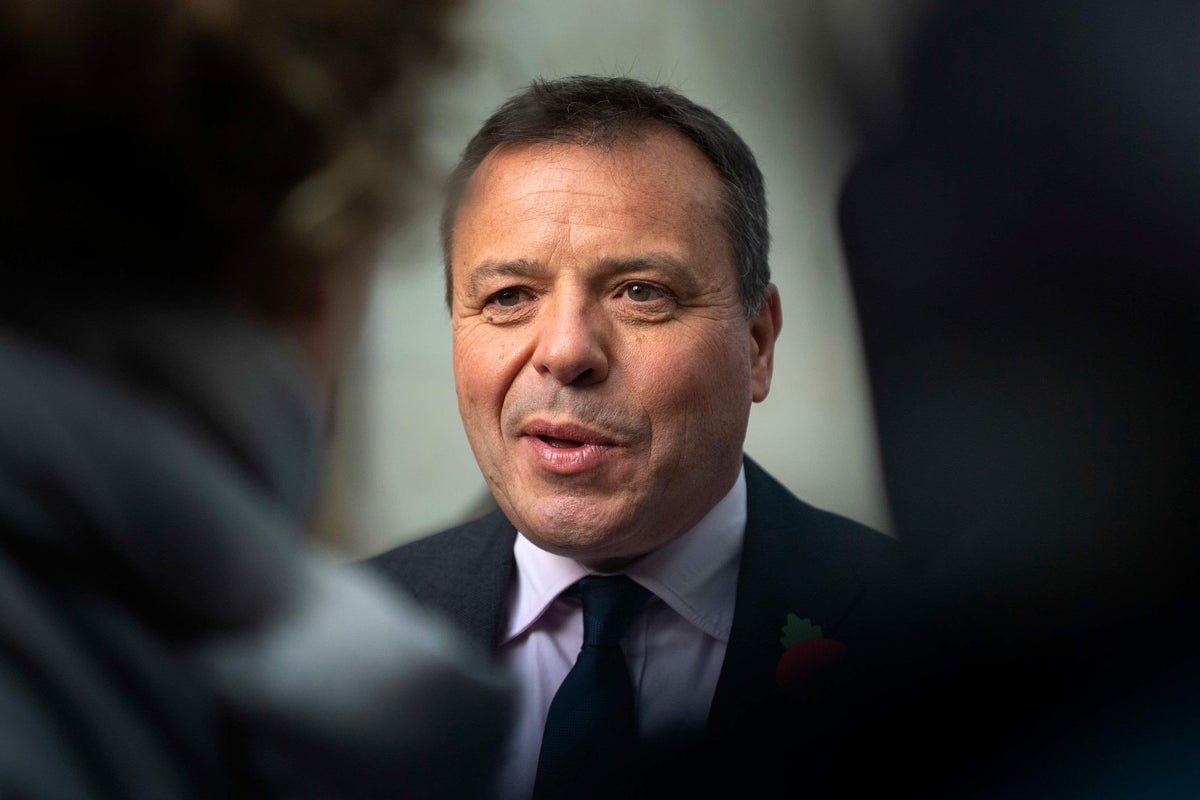
Businessman and prominent Brexit supporter Arron Banks has scored a partial victory in his libel case against investigative journalist Carole Cadwalladr.
Mr Banks, a major donor to the Leave campaign in the run-up to the 2016 referendum, sued Ms Cadwalladr for libel over a statement she made in a TED Talk and a tweet she later posted which included a link to the talk.
Mr Banks argued the statements made by Ms Cadwalladr were “false and defamatory” and sought damages and an injunction to restrain the continued publication of the remarks, which are still available to view online.
The Electoral Commission announced in April 2020 that a National Crime Agency investigation concluded there was no evidence to support the allegations against Mr Banks or his companies.
Ms Cadwalladr, a freelance journalist who writes for The Observer and has investigated the funding of the referendum campaigns and alleged misuse of data in relation to them, defended the claim at trial on the basis of public interest.
She abandoned a defence on the basis the claims were true after the meaning of the words in the talk was determined by a High Court judge at an earlier stage of the case.
In a June 2022 ruling, Mrs Justice Steyn dismissed Mr Banks’ claim, concluding that Ms Cadwalladr held a “reasonable belief” that her comments were in the public interest up until the April 2020 statement, and he had not suffered serious harm to his reputation.
Mr Banks challenged that ruling at the Court of Appeal, with his lawyers arguing the judge had incorrectly assessed the harm to his reputation and misinterpreted defamation law.In a ruling on Tuesday, three senior judges said the appeal should be allowed in relation to the TED talk’s publication after April 29, 2020, but upheld her other conclusions.
The decision paves the way for Mr Banks to recover damages from Ms Cadwalladr, but only in respect of the publication of the TED talk between April 2020, after the public and the High Court ruling in June last year.
Lord Justice Warby, who heard the appeal earlier this month with Dame Victoria Sharp and Lord Justice Singh, said in the ruling that some of the judge’s conclusions on the harm caused to Mr Banks’ reputation were “unsustainable”.
The judges also concluded she was wrong to find that the harm was diminished because the publications were made within an “echo chamber” of Ms Cadwalladr’s supporters, and the opinion of many of those people was of “no consequence” to Mr Banks.
He said: “If what the judge meant by the term ‘echo chamber’ was that most of the publishees were people who disliked or had a generally low opinion of the claimant that was irrelevant to the question she had to decide.
“If, as I believe, what she meant was that in the minds of most publishees the claimant already had a bad reputation for the specific misconduct of taking foreign money in breach of electoral law and lying about it, the evidence did not allow such a finding.
“The judge’s finding that harm to the claimant’s reputation in the eyes of these publishees was of ‘no consequence’ to him was also unsustainable.
“If she meant that the claimant did not care what these publishees thought, that was legally irrelevant to the issue of whether serious reputational harm was established.
“There was no evidence to support a conclusion that others’ adverse opinions of the claimant were of ‘no consequence’ to him in the sense that they could have no practical impact upon his life.”
He added: “The TED talk conveyed a serious allegation, involving dishonesty and breach of electoral law, which was inherently likely to cause serious reputational harm.
“On any view there was extensive publication of the TED talk in this jurisdiction in phase two.
“The judge rejected the defendant’s attempt to show that the claimant had a pre-existing bad reputation.
“Her own reasoning about an ‘echo chamber’ and the lack of any ‘consequence’ was unsound as I have said.”
The talk had around one million views in England and Wales initially, but only around 100,000 after the Electoral Commission statement on April 29 2020.
The level of damages Mr Banks is owed remains to be assessed, and his application for an injunction to prevent further publication of the words complained of is also yet to be determined.







